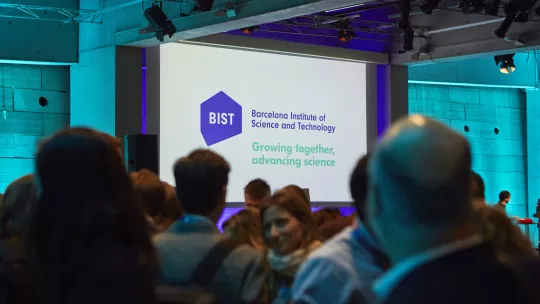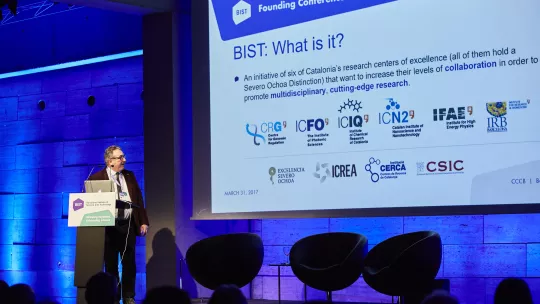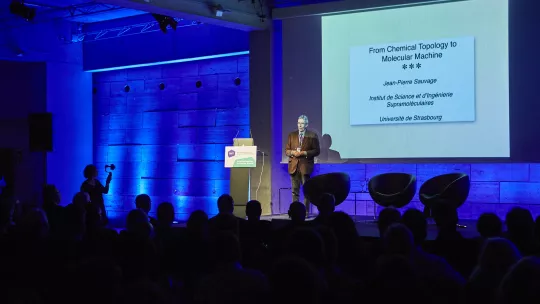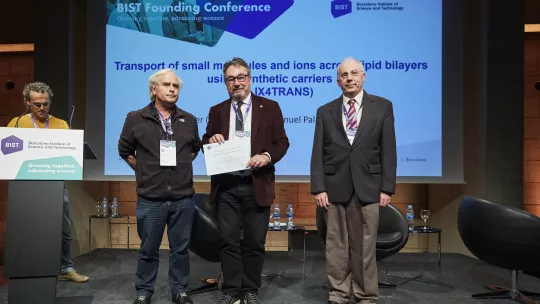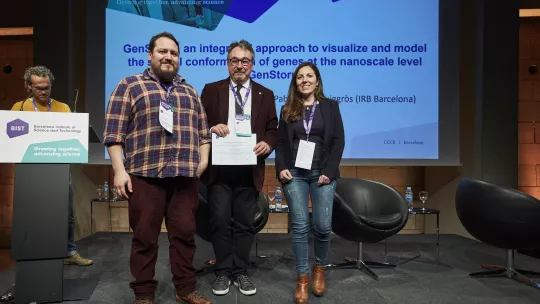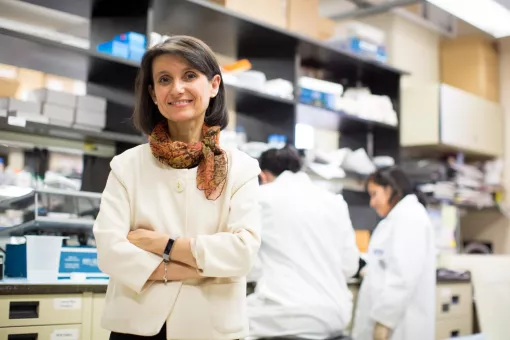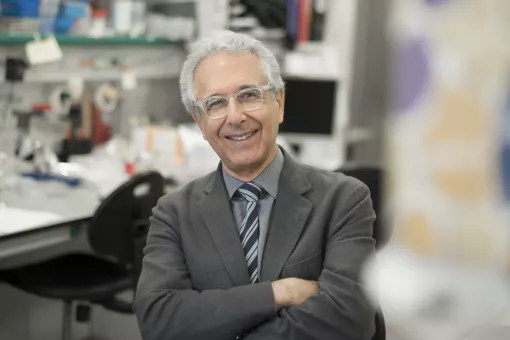Images
The announcement took place during the BIST Founding Conference on Friday 31 March at the Centre de Cultura Contemporània de Barcelona.
Jean-Pierre Sauvage, Nobel Prize in Chemistry 2016, opened the BIST Founding Conference in front of 300 participants including leading scientists from the six BIST’s centers (CRG, IRB Barcelona, ICN2,ICIQ, ICFO and IFAE) and invited speakers from top research centers around the world.
The conference continued with a series of dialogues in the four areas that BIST has identified as strategic for the development of multidisciplinary projects: chemical biology, graphene, big data and microscopy.
During the conference, BIST announced the five winning proposals of the first BIST Ignite call, an initiative to promote multidisciplinary research through the collaboration of diverse teams from BIST centres and external ones.The proposals CALIX4TRANS, a collaboration between Pau Ballester (ICIQ) and Manuel Palacín (IRB Barcelona), and GENSTORM, a collaboration between Marie Victoire Neguembor (CRG) and Pablo Dans Puiggros (in Modesto Orozco's laboratory at IRB Barcelona) are among the winning projects.
The Ignite initiative takes place in two phases: in the first, the selected projects will receive 20,000€ each. By the end of 2017, the two projects with the highest potential will be selected to receive additional funding of 50,000€ each.
Summaries of projects with IRB Barcelona's participation:
CALIX4TRANS will focus on research at the frontier of chemistry and biology, specifically on synthetic materials capable of transporting amino acids and small molecules through lipid barriers. Advances in this area may have applications in new methods for the controlled release of drugs at the cellular level and in the treatment of diseases such as cystic fibrosis and diabetes.
GENSTORM combines high-resolution microscopy with molecular modeling techniques to investigate how genes are physically organized within the cell nucleus and how this affects their function. This is the first super-resolution study of how some genes of great interest are organized during the process of cell differentiation. STORM images can provide new three-dimensional and quantitative information that will allow the integration of genomic and epigenomic data available to provide a new view of DNA and genes.
Find more about the other Ignite projects here
About IRB Barcelona
The Institute for Research in Biomedicine (IRB Barcelona) pursues a society free of disease. To this end, it conducts multidisciplinary research of excellence to cure cancer and other diseases linked to ageing. It establishes technology transfer agreements with the pharmaceutical industry and major hospitals to bring research results closer to society, and organises a range of science outreach activities to engage the public in an open dialogue. IRB Barcelona is an international centre that hosts 400 researchers and more than 30 nationalities. Recognised as a Severo Ochoa Centre of Excellence since 2011, IRB Barcelona is a CERCA centre and member of the Barcelona Institute of Science and Technology (BIST).

